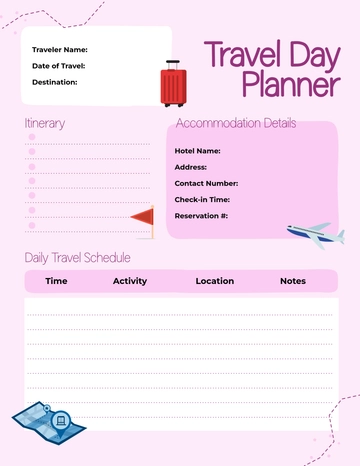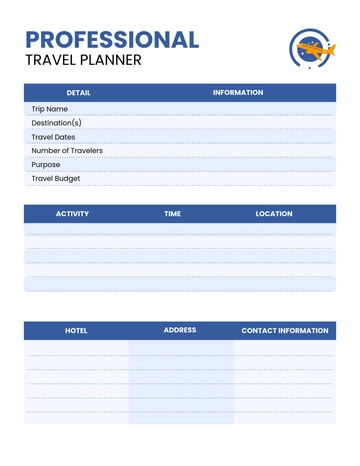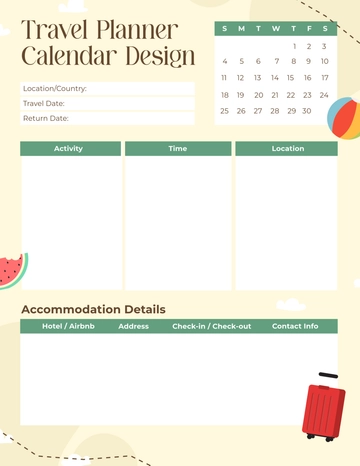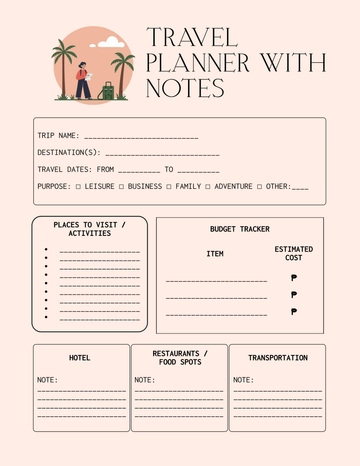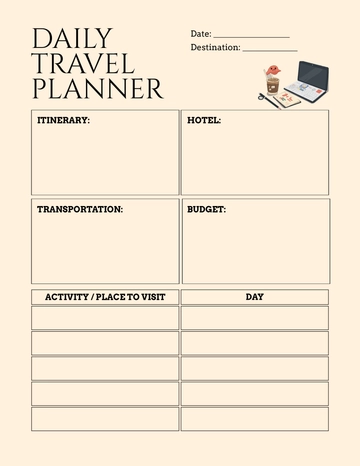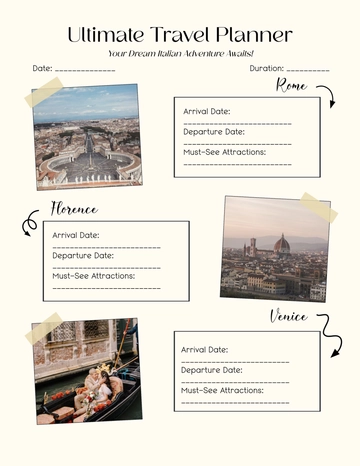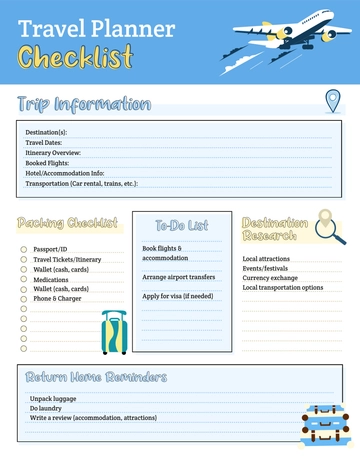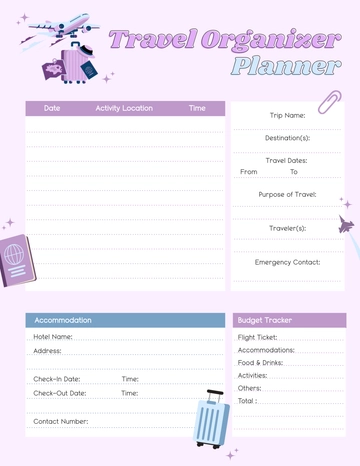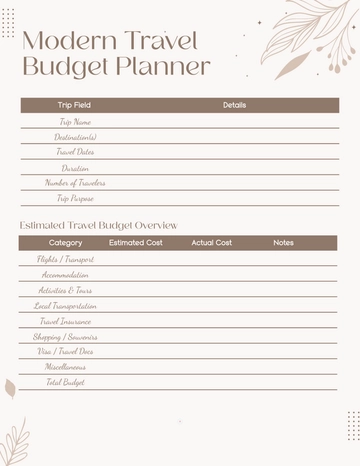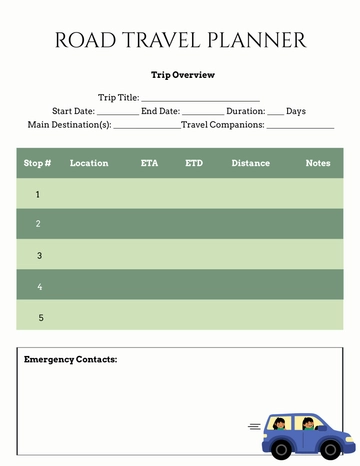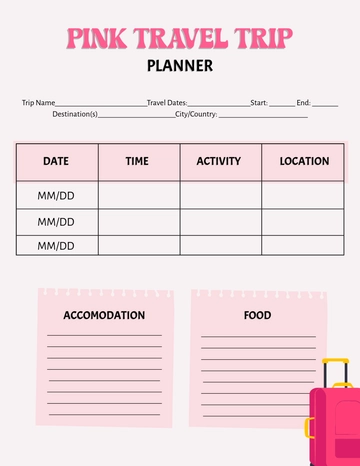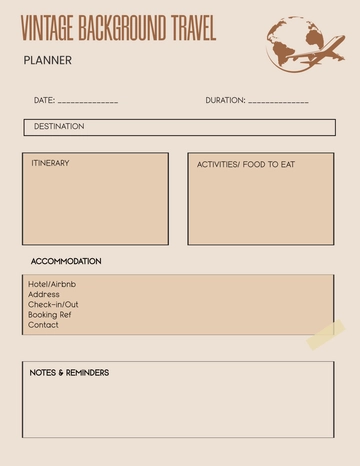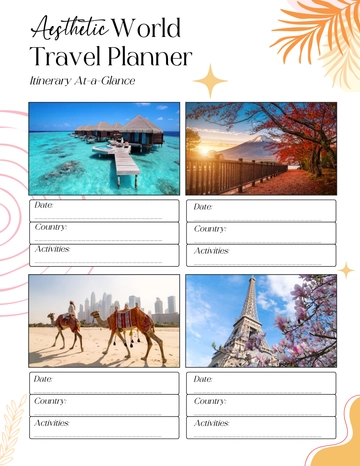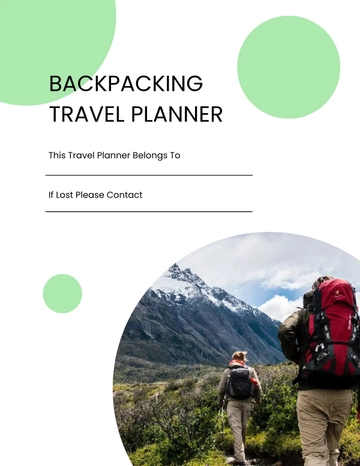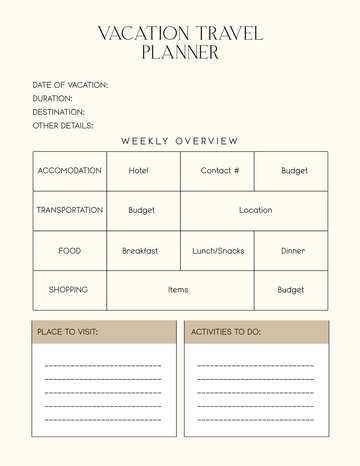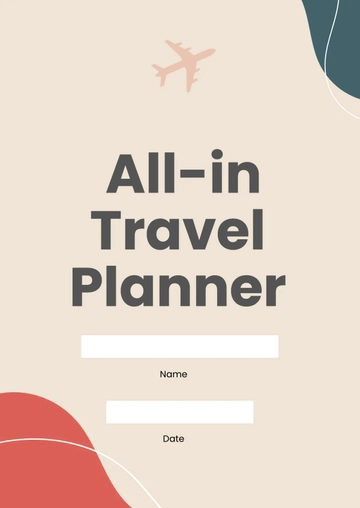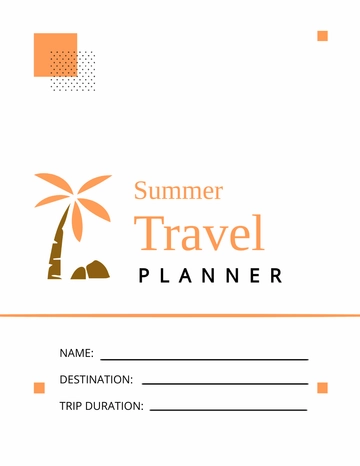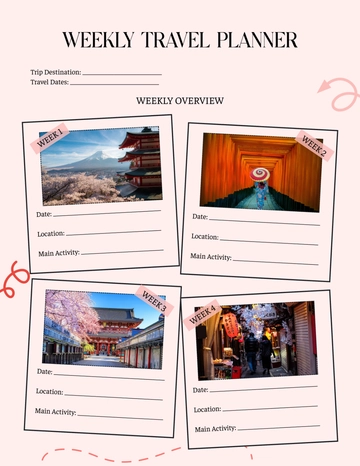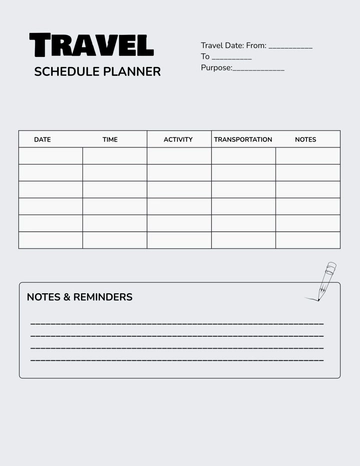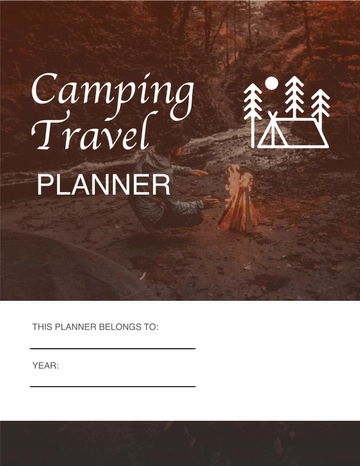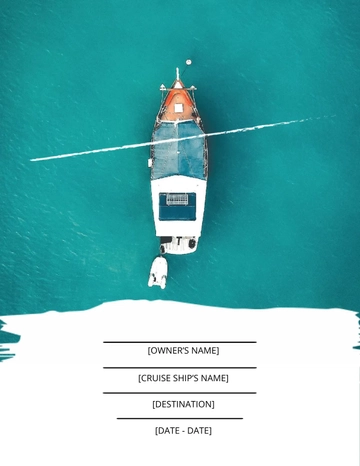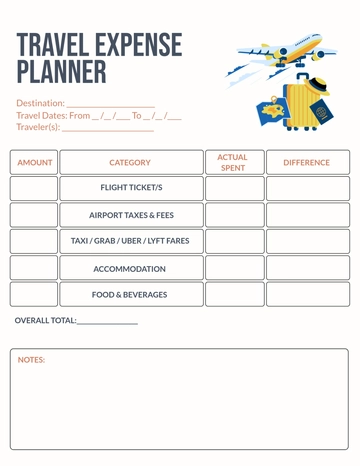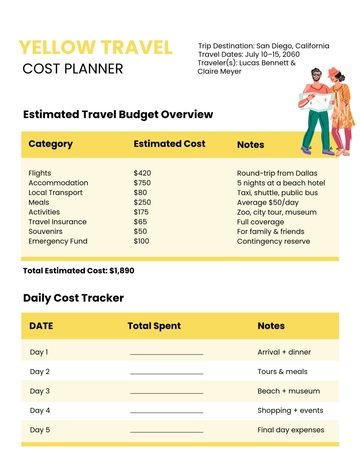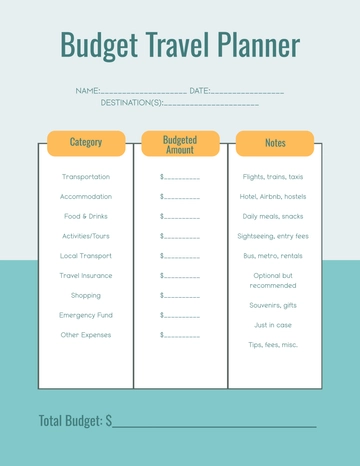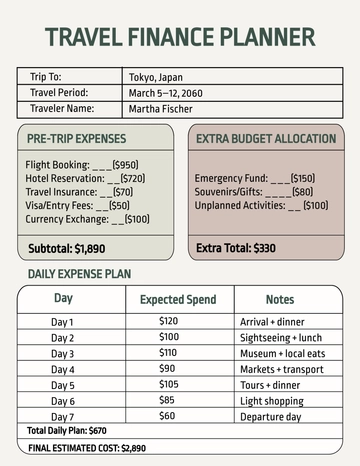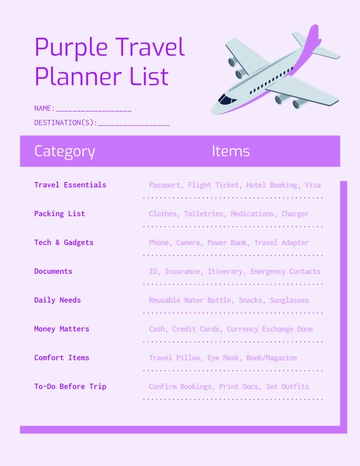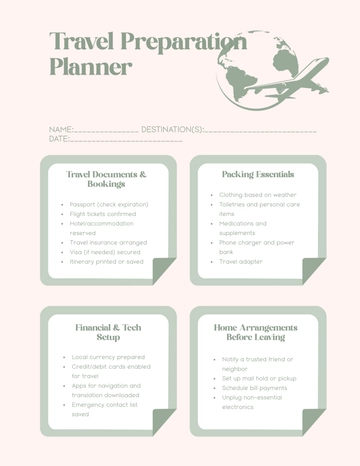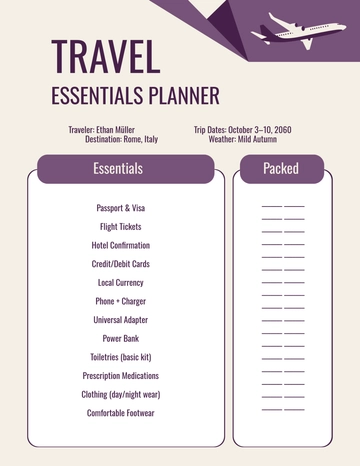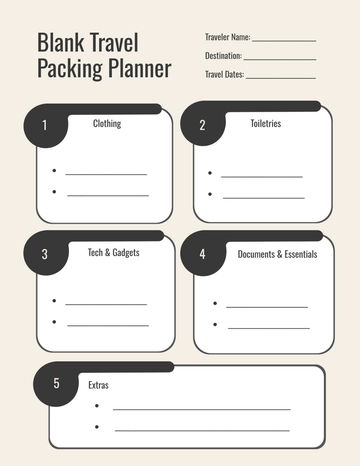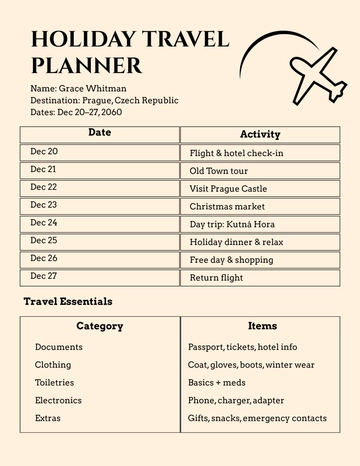Free Vacation Planner Website Proposal
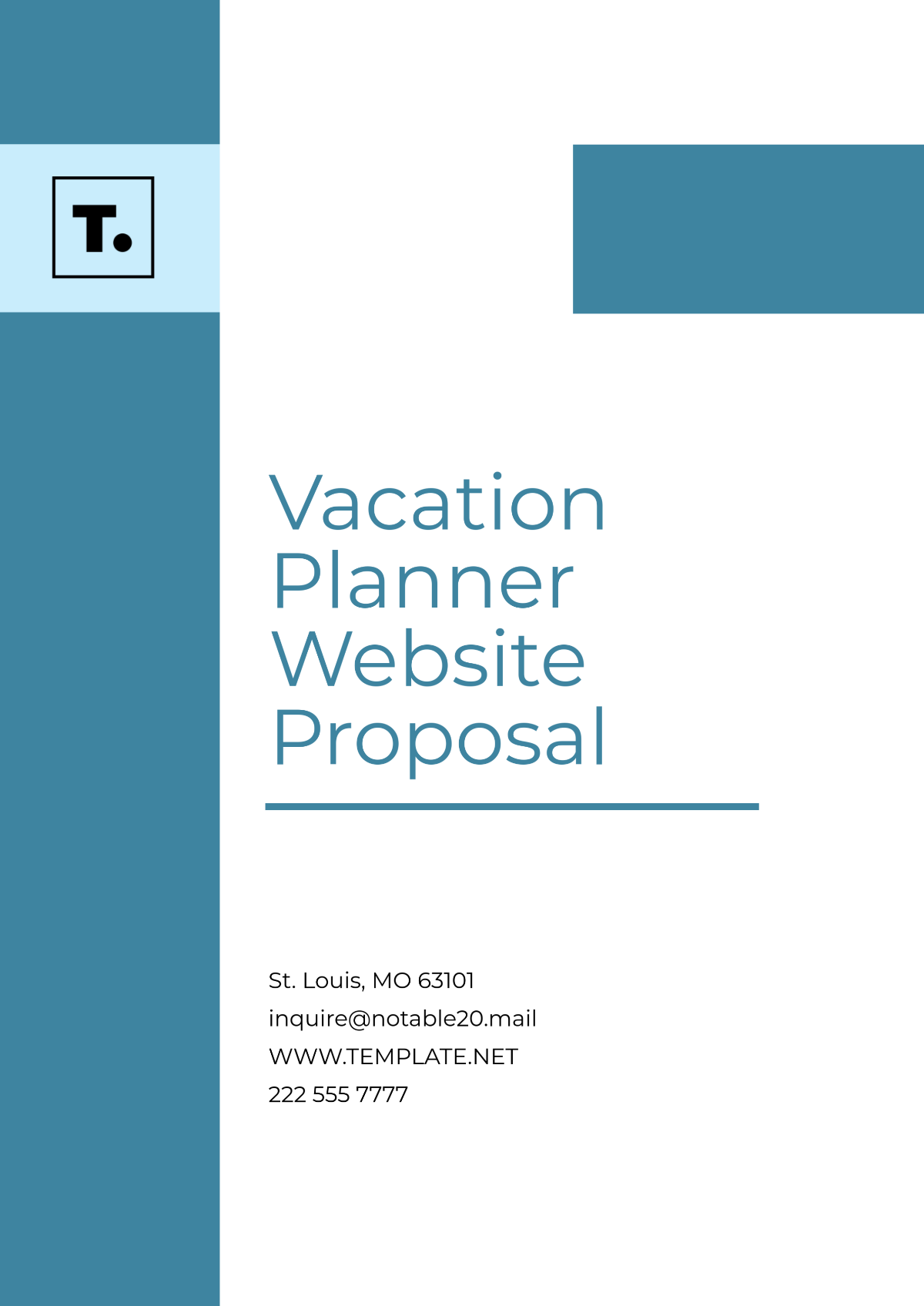
Prepared by: [Your Name]
Company: [Your Company Name]
Date: January 1, 2060
1. Executive Summary
The proposed Vacation Planner Website aims to provide a seamless platform for travelers to plan, customize, and book their dream vacations. The website will cater to a diverse audience, offering tools to create personalized itineraries, compare travel options, and access reliable travel information. The project’s primary goal is to deliver an intuitive and feature-rich platform that simplifies vacation planning while enhancing user satisfaction.
2. Project Goals and Objectives
Goals:
Develop a user-friendly website for vacation planning.
Integrate travel booking systems for flights, hotels, and car rentals.
Offer personalized recommendations based on user preferences.
Objectives:
Provide tools for itinerary customization.
Include real-time price comparison for travel services.
Enable seamless booking and payment processes.
3. Scope of the Project
The Vacation Planner Website will include the following functionalities:
Trip Planning Tools: Users can create, edit, and save itineraries.
Booking Integration: Direct integration with airlines, hotels, and car rental services.
Recommendations: AI-driven suggestions for destinations, activities, and accommodations.
User Profiles: Secure accounts to save preferences and past trips.
Interactive Map: Visual representation of travel routes and attractions.
Reviews and Ratings: Community-driven feedback on destinations and services.
4. Design and User Experience
The website will prioritize:
Responsive Design: Optimized for desktop, tablet, and mobile devices.
Intuitive Navigation: Clear menus, search bars, and user-friendly layouts.
Accessibility: Compliance with WCAG standards for an inclusive experience.
Visual Appeal: Modern, clean design with high-quality imagery.
5. Technical Specifications
Frontend: HTML5, CSS3, JavaScript, React or Angular for dynamic interfaces.
Backend: Node.js or Python (Django/Flask) for server-side logic.
Database: PostgreSQL or MongoDB for user and booking data.
APIs:
Travel APIs (e.g., Amadeus, Skyscanner) for bookings and pricing.
Mapping APIs (e.g., Google Maps) for route visualization.
Hosting: Cloud-based (AWS, Azure, or Google Cloud).
Security: SSL encryption, user authentication, and GDPR compliance.
6. Content Strategy
The website will feature:
Destination guides, travel tips, and itineraries.
User-generated reviews and photos.
Dynamic content, including real-time weather updates and currency converters.
SEO-optimized blog articles to attract organic traffic.
7. Timeline and Milestones
Planning and Requirements Gathering (2 weeks)
Design and Wireframing (3 weeks)
Development (8 weeks)
Frontend and Backend Development (5 weeks)
API Integration (3 weeks)
Testing (2 weeks)
Functionality, Usability, and Security Testing
Launch (1 week)
Final review and deployment.
Estimated Total Duration: 16 weeks
8. Budget and Cost Estimation
Design and Development: $20,000
API Integration: $5,000
Testing and Quality Assurance: $3,000
Hosting and Maintenance (First Year): $2,000
Total Estimated Cost: $30,000
9. Marketing and Promotion Strategy
SEO: High-ranking keywords and metadata for organic traffic.
Social Media Campaigns: Engaging posts, targeted ads, and influencer collaborations.
Email Marketing: Newsletters with travel deals and tips.
Partnerships: Collaborate with travel agencies and bloggers.
10. Maintenance and Support
Regular updates to features and security patches.
Dedicated support team for user inquiries and technical issues.
Analytics tools for performance monitoring and improvement.
11. Conclusion and Call to Action
This proposal outlines a comprehensive plan for developing a Vacation Planner Website tailored to enhance the travel planning experience. With its robust features and user-centric design, the platform will serve as a valuable tool for travelers. We invite stakeholders to review the proposal and move forward with approval to commence development.
- 100% Customizable, free editor
- Access 1 Million+ Templates, photo’s & graphics
- Download or share as a template
- Click and replace photos, graphics, text, backgrounds
- Resize, crop, AI write & more
- Access advanced editor
Plan dream vacations with ease using the Vacation Planner Website Proposal Template from Template.net. Fully customizable and effortlessly editable, this template ensures professional results tailored to your needs. Easily modify content and design using our AI Editor Tool, saving time while creating standout proposals. Perfect for organizing travel plans or pitching to clients!
You may also like
- Aesthetic Planner
- Hourly Planner
- Daily Planner
- Weekly Planner
- Monthly Planner
- Planners Yearly
- Event Planner
- Project Planner
- Calendar Planner
- Student Planner
- School Planner
- Teacher Planner
- Kawaii Planner
- Budget Planner
- Life Planner
- Meal Planner
- Study Planner
- Business
- Workout Planner
- Work Schedule Planner
- Party Planner
- Social Media Planner
- Baby Shower Planner
- Book Planner
- Planner Cover
- Debt Planner
- Desk Planner
- Diet Planner
- Family Planner
- Fitness Planner
- Goal Planner
- Health Planner
- Medical Planner
- Holiday Planner
- Homework Planner
- Itinerary Planner
- Journal Planner
- Personal Planner
- Route Planner
- Smart Goal Planner
- Travel Planner
- Wedding Planeer
